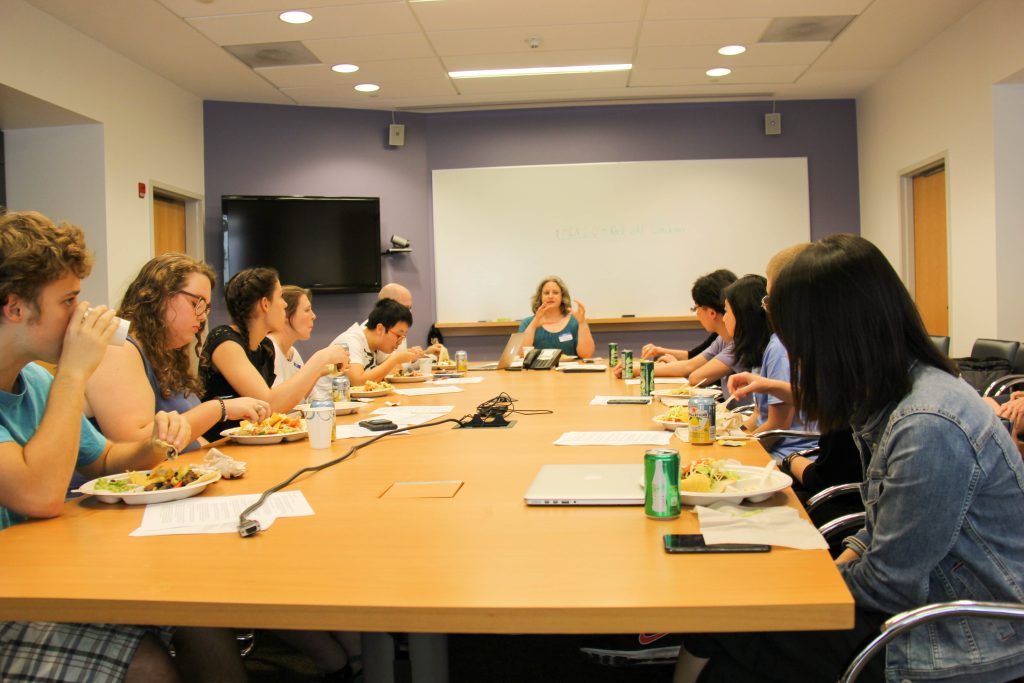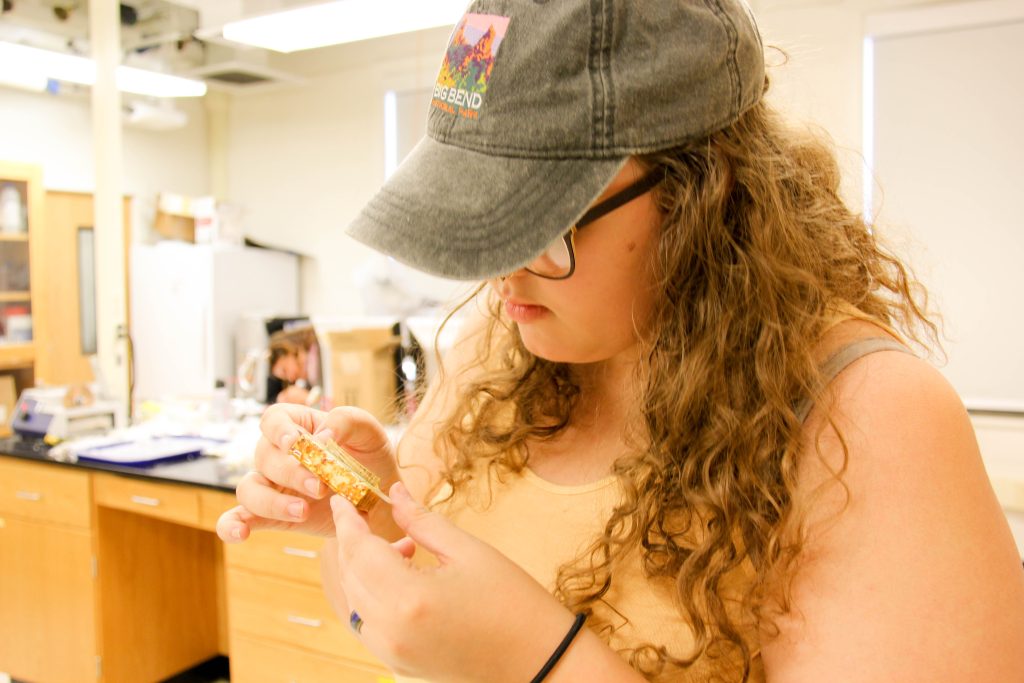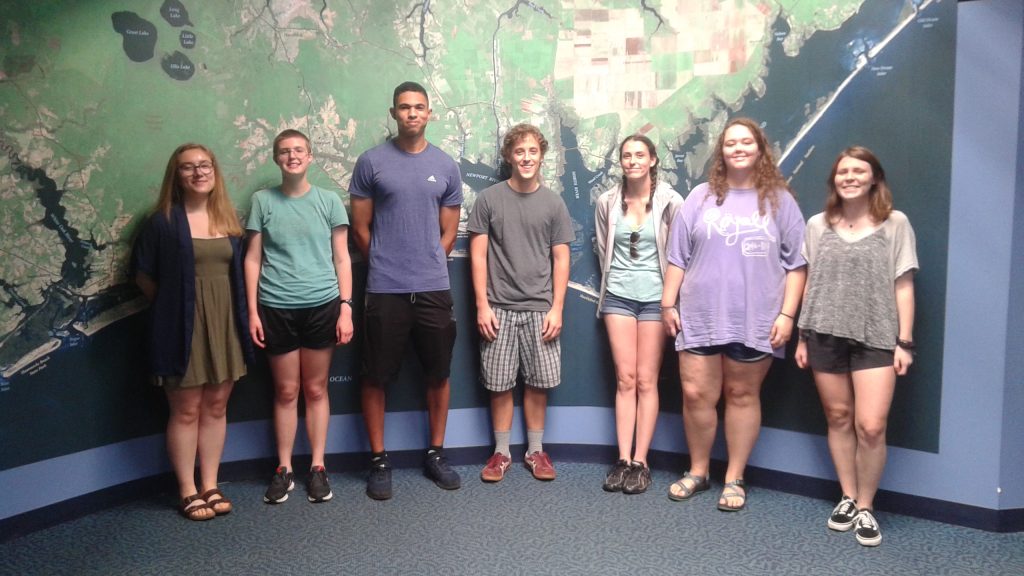IDEA 2.0 welcomes 2018-2019 cohort
June 28, 2018
Eight UNC-Chapel undergraduate students recently began an intensive, yearlong research program called IDEA 2.0 (Increasing Diversity and Enhancing Academia). The program kicked-off with a luncheon where students and their faculty and graduate student mentors gathered to discuss the 10-week summer itinerary.
Each student is placed in a research lab with faculty and graduate student mentors. Throughout the 10 weeks, students participate in a weekend retreat and other immersions designed to build their research portfolios and practical skills, such as developing a curriculum vitae, creating a scientific poster, writing a scientific abstract and a statement of interest, and navigating graduate school and research funding.
The summer research experience will culminate in an undergraduate research symposium at the end of July. During the academic year, the students will participate in Saturday Intensives, where they will be introduced to research conducted in the Research Triangle through site visits and field excursions to institutions such as RTI International, North Carolina Department of Environmental Quality, U.S. Environmental Protection Agency, and National Institutes of Health.
“We are thrilled to have eight exceptional students in the 2018-2019 cohort,” said Megan Hughes, IDEA 2.0 co-program coordinator and research associate at the Institute for the Environment.“The students are already reviewing literature, completing lab safety training, and practicing lab skills and most have begun collecting data for their summer project. The IDEA 2.0 Team is looking forward to seeing their results at the end of the summer.”
2018-19 Cohort
Coby Dorsey (Chemistry)
Kirsi Oldenburg (Environmental Health Sciences)
Tommy Clerkin (Environmental Sciences)
Williams Hamilton (Environmental Science)
Sarah Brooker (Geochemistry)
Jordan Zabrecky (Geological Sciences)
Abby Fancher (Geological Sciences)
Madeline Hunt (Geophysics)
IDEA 2.0 is a renewal of the original five-year IDEA program, funded through a grant from the National Science Foundation, which spanned from 2012-2016. IDEA 2.0 is intended to give high-achieving students, and especially those who are underrepresented in the geosciences, access to geoscience research experiences alongside top faculty members and graduate students. Students explore a range of topics in various labs across campus in marine sciences, geology, geography and environmental sciences.
Under the supervision of faculty and graduate student mentors, this cohort will log more than 2,400 research hours this summer.

“This is especially important because one emphasis of the program is developing strong mentor-mentee relationships. We think that having a strong relationship with a mentor opens up doors to the ‘geoscience network’ and future opportunities that encourage students to pursue a career in the geosciences,” Hughes said.
The cohort traveled to Trinity Center in Salter Path, N.C. for their summer retreat where they met with researchers, assisted with a dolphin necropsy, explored the coast, and participated in a data collection field experience.
“We appreciate that the National Science Foundation has a commitment to increasing diversity in the geosciences. I often tell my students that ‘the scientists of the world should be like the people of the world.’ The IDEA 2.0 Team is working hard to help UNC’s geoscience departments prioritize recruitment and retention of diverse students, and make these ideals part of the fabric of the department, so that all kinds of students are represented, cultivated, and supported,” she said.
Kathleen Gray, director of IE’s Environmental Resource Program, associate director for outreach and public service and clinical assistant professor, is the principal investigator and co-program coordinator of the IDEA 2.0 Undergraduate Research Program. Drew Coleman, a professor in the Department of Geological Sciences, is the incoming co-principal investigator and Sherick Hughes, professor in the School of Education, is the program evaluation lead.

